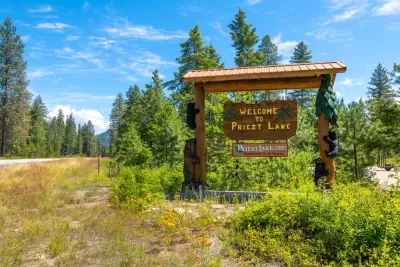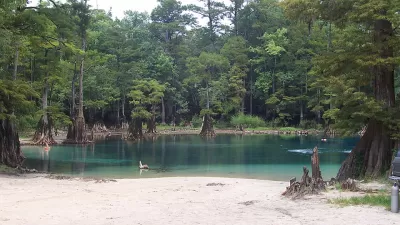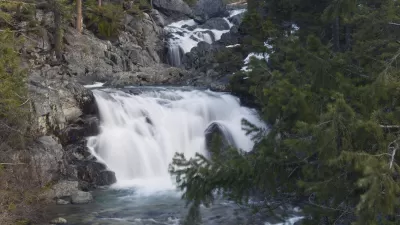The future of the Clean Water Act could look much different after fossil fuel interests and the Supreme Court done with it.

A bill designed to overhaul federal permitting processes was a controversial part of the deal that helped get the Inflation Reduction Act across the finish line. The expectation that the deal would eventually make it easier to build large federal infrastructure projects provoked loud debate. One one side, proponents argues that environmentalists would have to cede legal and regulatory ground to make it easier to develop new wind and solar power capacity. On the other side, opponents, including Senator Bernie Sanders, said the deal was coming at too high of a cost for the environment, and the main beneficiary of changes would be fossil-fuel interests, not clean energy.
The latest news reveals some of what the latter group was worried about, as provisions of the Energy Independence and Security Act of 2022, announced by Senator Joe Manchin last week, would take aim at the Clean Water Act—one of the most significant and highly contested environmental regulations in U.S. history.
According to an article by Maxine Joselow for the Washington Post, the bill “includes a provision that would modify Section 401 of the Clean Water Act, which gives states and tribes the authority to grant, deny or waive certification of permits to fill or dredge federally protected waters such as rivers and wetlands.”
According to the Washington Post’s investigation, Equitrans Midstream, which owns a 48.1 percent stake in the Mountain Valley Pipeline, which would carry natural gas more than 300 miles from West Virginia to Virginia, voiced support for changing the word “discharge” to “activity” in the Clean Water Act. The effect of this change and others is unclear, according to legal analysts cited in the article. Some expect more certainty; others expect some powers to reject permits outright because of the changes.
Simultaneously to these new questions about the future of the Clean Water Act, the Supreme Court is considering a case that could also undo the definitions central to the “Waters of the United States Rule,” as established by the previous court ruling of Rapanos v. United States. A separate article for the Washington Post by Robert Barnes provides more detail on the Supreme Court case, Sackett v. Environmental Protection Agency, which will enter oral arguments during the first week of October.
FULL STORY: Manchin eyes changes to Clean Water Act in permitting bill

Alabama: Trump Terminates Settlements for Black Communities Harmed By Raw Sewage
Trump deemed the landmark civil rights agreement “illegal DEI and environmental justice policy.”

Study: Maui’s Plan to Convert Vacation Rentals to Long-Term Housing Could Cause Nearly $1 Billion Economic Loss
The plan would reduce visitor accommodation by 25% resulting in 1,900 jobs lost.

Why Should We Subsidize Public Transportation?
Many public transit agencies face financial stress due to rising costs, declining fare revenue, and declining subsidies. Transit advocates must provide a strong business case for increasing public transit funding.

Paris Bike Boom Leads to Steep Drop in Air Pollution
The French city’s air quality has improved dramatically in the past 20 years, coinciding with a growth in cycling.

Why Housing Costs More to Build in California Than in Texas
Hard costs like labor and materials combined with ‘soft’ costs such as permitting make building in the San Francisco Bay Area almost three times as costly as in Texas cities.

San Diego County Sees a Rise in Urban Coyotes
San Diego County experiences a rise in urban coyotes, as sightings become prevalent throughout its urban neighbourhoods and surrounding areas.
Urban Design for Planners 1: Software Tools
This six-course series explores essential urban design concepts using open source software and equips planners with the tools they need to participate fully in the urban design process.
Planning for Universal Design
Learn the tools for implementing Universal Design in planning regulations.
Smith Gee Studio
Alamo Area Metropolitan Planning Organization
City of Santa Clarita
Institute for Housing and Urban Development Studies (IHS)
City of Grandview
Harvard GSD Executive Education
Toledo-Lucas County Plan Commissions
Salt Lake City
NYU Wagner Graduate School of Public Service





























